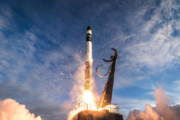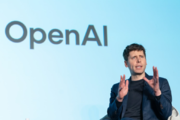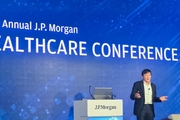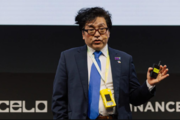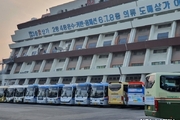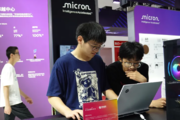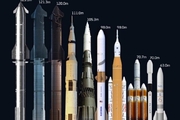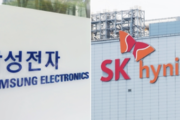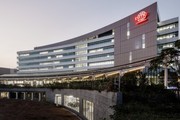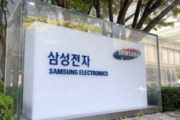
[News Space=Reporter seungwon lee] Boyung (formerly Boyung Pharmaceutical) declared space medicine as a new growth engine under CEO Kim Jeong-gyun and invested over 120 billion won in space business over the past three years, but questions are being raised about its clear business performance, strategic direction, and expertise.
◆ 900 billion investment, declaration of ‘future food’… Where are the results?
CEO Kim Jeong-gyun said in 2022, “While internally contemplating what Boryung should do to become a company that is essential to humanity from a long-term perspective, we came up with the challenging and long-term project of thinking about how we could become such a company in space,” and announced that CIS (Care In Space) would be held annually.
Since 2022, Boryung has invested a total of KRW 81.6 billion (USD 60 million) in Axiom Space, a private space station company in the United States, in two installments, securing a 2.68% stake and establishing a joint venture called Braxspace, among other investments in space businesses. As of now, Boryung has invested KRW 120 billion in Axiom Space.
However, no visible profits or actual business results have been confirmed to date. Most of the representative projects put forward are space healthcare idea competitions such as the 'Care In Space (CIS) Challenge' and educational and promotional events that send elementary school students' drawings into space. In reality, there are no cases of developing new drugs in space or commercializing space medical platforms.
◆ Shouting ‘Space’ amid poor performance… but shareholder and market trust is falling
In the first quarter of 2025, Boryung's operating profit decreased by 33.2% year-on-year to KRW 10.9 billion. Sales increased by 3% to KRW 240.6 billion, but investor confidence declined due to increased R&D expenses, a sluggish general pharmaceutical market, and uncertainty about space business investments.
The stock price plunged nearly 20% immediately after CEO Kim Jeong-gyun proposed the space business as a new business, and continued to decline thereafter.
Shareholders are criticizing, saying, “Why is a pharmaceutical company investing so heavily in space business?” and “They are wasting resources on promotional events that have no real results.”
In particular, as the gap with the top domestic companies in the existing pharmaceutical and bio businesses has not been narrowed, the view that the space business is merely a 'show' for management succession and to highlight presence is spreading.
◆ The identity of the 'space expert' and mentor group is unclear... Space business strategy and vision are also 'shrouded in fog'
Boryung announced that it will establish an internal TFT for space healthcare business starting in 2020 and hold the CIS Challenge in cooperation with global space companies and startups every year starting in 2023, but there is no information disclosed on whether there are experts with extensive practical experience in the space industry or an independent mentor group. It is said that the frequent personnel changes and repeated short-term resignations after joining the company have not even created an organizational culture in which space business experts can take root.
The space mentoring program promoted by Boryung also relies on external global startup accelerators (Starburst) and Axiom Space.
The strategic goals and mid- to long-term visions of the space industry are also limited to abstract declarations such as ‘development of new drugs in space’ and ‘establishment of a space healthcare platform.’ In reality, no specific roadmap has been presented for developing new drugs in space stations or commercializing healthcare solutions for astronauts.
◆ 'Space Promotion' is Overused... There Are Already Many Similar Businesses
Boryung's recent emphasis on 'nurturing space talent' and 'sending space drawings by youth' is similar to projects that the Korea Foundation for the Advancement of Science and Creativity and the Korea Aerospace Research Institute have been promoting for several years. It is difficult to say that Boryung has secured a unique differentiation in this field.
An industry insider said, "Even in Boryung's main business of pharmaceutical and biotechnology, it is difficult to say that the company has properly established itself, but it presented a tremendous growth engine called 'space medicine.' However, when the lid was actually opened, it was nothing more than 'sending an elementary school student's drawing into space.'" He evaluated, "Aside from showing off its presence through a leading image by putting the space business first, there is no substance or achievement, to the point that Boryung's future is worrisome."
◆ Bio-business performance is also limited… Can a breakthrough be found in ‘space’?
Boryung achieved the top spot in the domestic anticancer drug market share by recording a three-fold increase in sales in four years (KRW 79.8 billion in 2019 → KRW 217 billion in 2023) in the anticancer drug business, but this was due to the existing strategy centered on synthetic drugs and generics. There have been no notable results yet in bio new drugs or global new drug development. Rather, it has been confirmed that the proportion of the bio business is being reduced, such as by promoting the sale of the bio affiliate (Boryung Biopharma).
◆ Industry consensus: "Korea lacks both strategy and expertise to become a key player in the space industry"
The activities carried out after declaring Boryung's space business as a new growth engine have achieved some results in terms of educational and social value, and raising brand awareness. However, the industry consensus is that there is no objective output that can be said to have led to actual business results (new drug development, platform commercialization, profit generation, etc.).
In other words, it is evaluated as an 'investment stage' for securing long-term growth momentum rather than short-term performance, and there are continued opinions both inside and outside the market that it must be supported by actual research and development results and specific commercialization cases in the future.
Boryung's space business has so far focused on 'long-term vision' and 'promotional events', and has shown shortcomings in both actual performance, expertise, and strategic roadmap. The identity of the internal space expert/mentor group is also unclear. It is difficult to avoid criticism that it is limited to show-off investments and events rather than becoming a 'pillar' that will lead the future of the Korean space industry.
In order for CEO Kim Jeong-gyun's 'space bet' to become a true future growth engine, it is urgent to secure actual research and development results, expertise, and a clear strategic vision.
Meanwhile, CEO Kim Jeong-gyun was born in 1985 and graduated from the University of Michigan with a degree in industrial engineering, and completed a master's course in social administration pharmacy at the Graduate School of Pharmaceutical and Food Science at Chung-Ang University. After working at Samjeong KPMG in January 2011, he joined Boryung in 2014 and has been serving as CEO since 2022.





